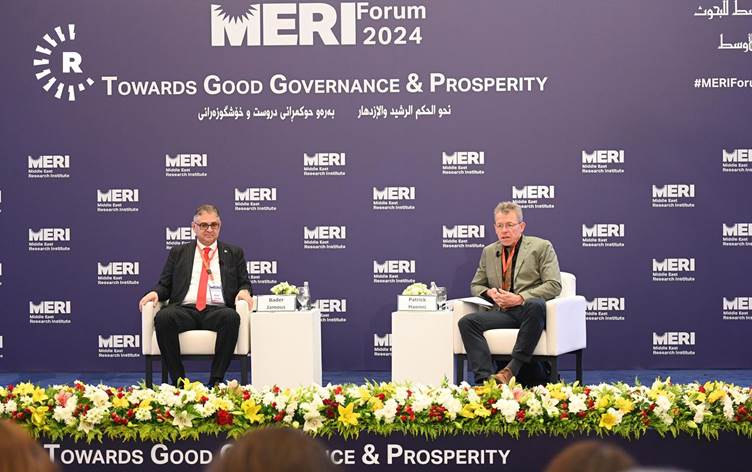During his participation in the Middle East Forum 2024 currently held in Erbil in the Iraqi Kurdistan Region, Badr Jamous, President of the Syrian Negotiations Commission (SNC), expressed his belief that Arab countries collectively have the capacity to drive Syria’s political process forward. He urged the Arab League to convene an international conference dedicated to Syria, which would help advance the political process in line with UN resolutions.
In a session titled “The Future of Syria: Prospects for Peace and Reconstruction,” Jamous explained that the SNC is the official UN-recognized body for negotiating Syria’s future. Representing all Syrians, the SNC aims to work toward a fair political solution for all segments of Syrian society, ensuring sustainable peace within a new social contract.
Jamous stressed that normalization by some countries with the Assad regime has yielded no tangible benefits. He argued that without progressing toward a political solution, Arab engagement holds little value. He emphasized that the Assad regime avoids political solutions, fails to honor commitments to Arab and foreign nations, and is unwilling and incapable of making the profound changes needed to rebuild Syria. Such transformation requires Syrian unity, collaborative efforts, and openness—concepts the regime resists.
He also emphasized that the Syrian issue has always been a political matter rather than a purely humanitarian one. It is, above all, the struggle of a people seeking their rights and rejecting an oppressive, authoritarian regime.
The SNC, he said, firmly believes that the solution in Syria lies solely through international and UN resolutions. However, he expressed hope that a unified Arab League plan could push the regime toward a political resolution according to these UN resolutions.
He voiced his conviction that Arab nations could collectively achieve this goal, urging them to convene an international conference on Syria to support the political process per international decisions. He also criticized the Arab League for not engaging all parties.
Jamous emphasized Türkiye’s role as a strategic ally to Syrian revolution and opposition forces, noting ongoing communication with Turkish officials. He added that Türkiye has made clear that it will not normalize with the regime without conditions, instead insisting on advancing the political process, establishing a new constitution, and holding elections in line with UN Resolution 2254. Türkiye’s stance, Jamous noted, is one the regime understands as serious, causing it to avoid engagement with Türkiye.
Jamous affirmed the SNC’s commitment to UN resolutions, particularly Resolution 2254, and welcomed any joint Turkish-Arab-international plan that aligns with these resolutions to reinvigorate the political process. He noted that resolving crises involving all countries involved in Syria is interconnected with achieving a comprehensive political solution there.
He also praised the anti-regime protests in Sweida, which reignited after 12 years, noting that they began after the Arab League restored Syria’s seat to the regime. These protests advocate for implementing UN Resolution 2254, demonstrating the resilience and determination of the Syrian people. Syrians, he said, have nothing left to lose, having already paid the ultimate price for themselves and others. If a political solution is not reached per international resolutions, he warned, further upheaval and ongoing crises are inevitable, with poverty, distrust of the regime, lack of a political solution, and persistent repression propelling Syria toward worsening instability.
(Source: SOC’s Media Department)













